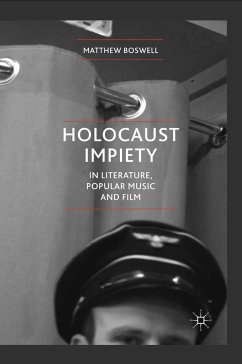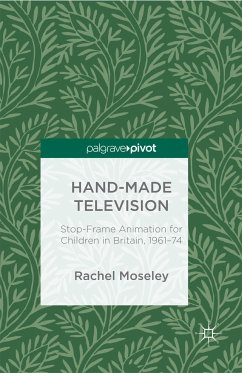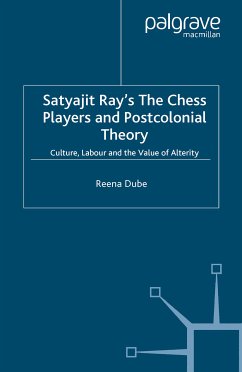
Holocaust Impiety in Literature, Popular Music and Film (eBook, PDF)
Versandkostenfrei!
Sofort per Download lieferbar
40,95 €
inkl. MwSt.
Weitere Ausgaben:

PAYBACK Punkte
20 °P sammeln!
Surveying irreverent and controversial representations of the Holocaust - from Sylvia Plath and the Sex Pistols to Quentin Tarantino and Holocaust comedy - Matthew Boswell considers how they might play an important role in shaping our understanding of the Nazi genocide and what it means to be human.
Dieser Download kann aus rechtlichen Gründen nur mit Rechnungsadresse in A, B, BG, CY, CZ, D, DK, EW, E, FIN, F, GR, HR, H, IRL, I, LT, L, LR, M, NL, PL, P, R, S, SLO, SK ausgeliefert werden.












